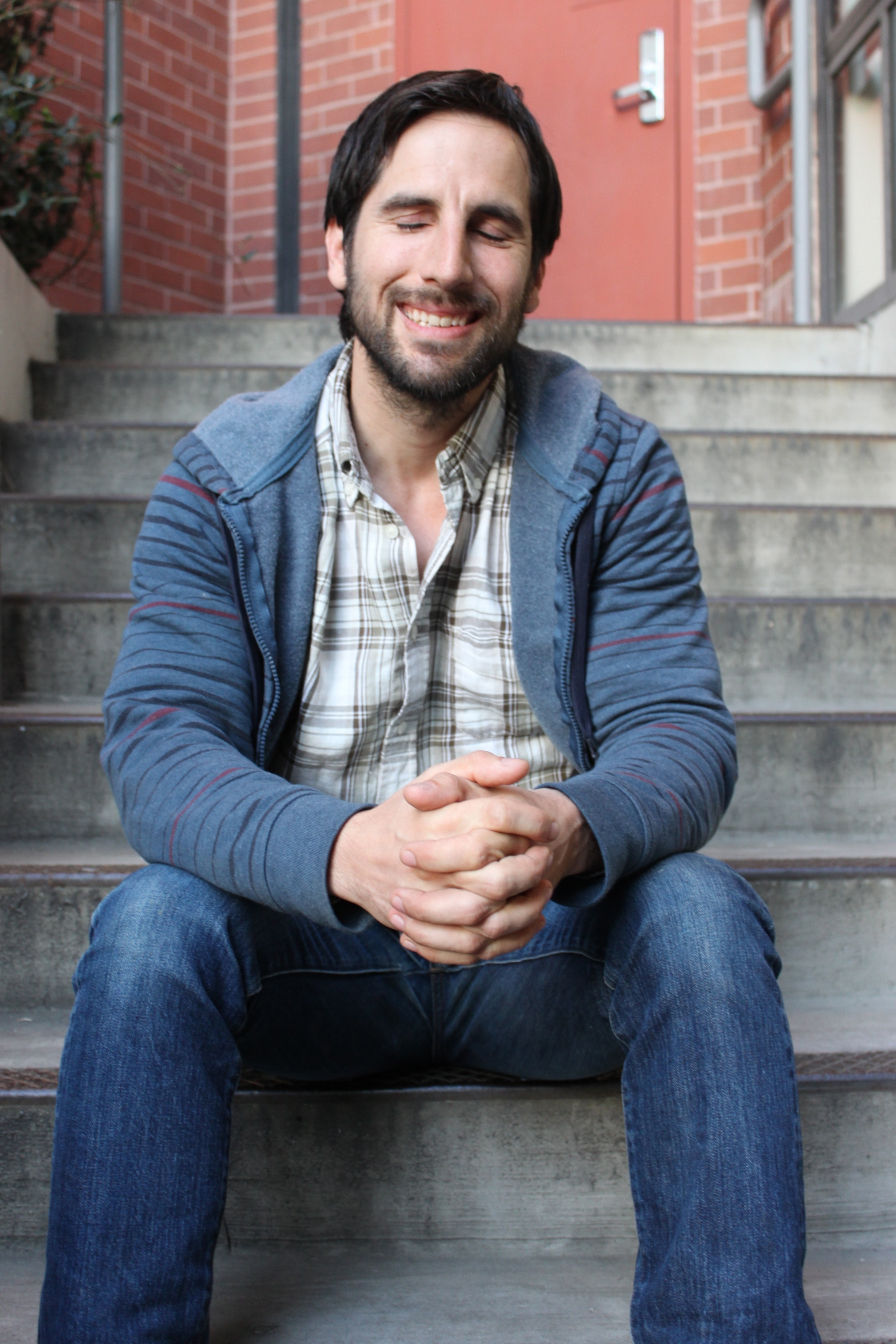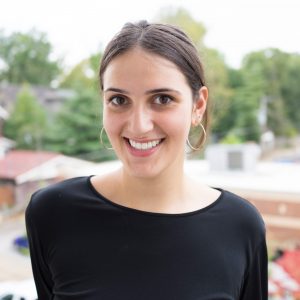“Cultured meat is the reason why I got into biology”
David is a PhD cell biologist from Toronto who first started thinking about animal-free meat in 2000, when discussing “meat trees” with his father on a camping trip. An animal lover, he knew that animal farming could never have ideal welfare standards, and that producing meat without the animal was the best solution to that problem.
Four years later he found himself reading an instrumental publication on cultured meat in the journal Tissue Engineering, co-authored by New Harvest founder Jason Matheny. It inspired him to pursue biology after a BSc. in Mathematics and a MSc in Biochemistry. David has since used his molecular biology skills to help animals in his work with Fur Bearer Defenders (an anti-fur activist group based in British Columbia, Canada) to identify the origin species of fur and feather samples.
Today, David is trying to make chicken-free egg whites with a fresh New Harvest start-up in San Francisco. He is new to the start-up scene after spending a long time in academia, and is excited to see that it is a place where ideas that wouldn’t otherwise be taken seriously by granting agencies can get off the ground.

New Harvest: Hi David! Thanks for talking with us! Why don’t you start by explaining what you’re working on?
David: We’re aiming to produce an animal-free egg white product—one that’s made up of the same components as the real thing.
NH: Why egg whites?
D: Any animal-derived food is subject to animal welfare issues, no matter how good the welfare policies are. So aside from thinking about cultured meat, I’ve been thinking about what other animal products could be made animal-free. Egg whites have been kicking around in my head for a while. It’s sort of difficult to culture hen oviduct cells—cells of the oviduct tract of the hen—and they’re the ones that secrete egg whites around the yolk of the egg to form what you eat. My initial idea was to isolate and establish a long-term culture of those. Nobody in the literature has really been able to establish an oviduct cell line that continuously secretes egg white proteins, so that was a bit of a roadblock. But then I went and met the Muufri guys in San Francisco and something clicked. That’s where the inspiration was.
NH: When do you anticipate having a viable product? What’s the timeline for when people might actually be able to eat your egg whites?
D: To market is different than having an edible product. For what we’re working on in particular—optimistically we would like to have an edible thing by the end of the summer, and to market soon after that. But the real problem is bringing down cost.
NH: How do you see the price going down enough to make it an affordable competitor with eggs in the grocery store right now?
D: That’s what makes it an interesting engineering problem. That’s what’s going to be the focus of my research in the next few months. The bottleneck is purification. When you have industrial food product, you have to separate the thing you want to eat from the other things that get made in the process. That’s where a lot of the costs come. There are some new technologies with people we’re talking with that have a lot to offer.
New Harvest: Do you think it will be a challenge convincing consumers to eat in-vitro meat or eggs or milk instead of the “real thing?”
D: Yes, I think there will be some skittishness about that in the beginning. But I also think there will be awareness that the ick factor of real meat and eggs far outweighs that of their cultured counterparts. I think that education will happen not from our marketing but from awareness of the meat industry.
NH: What drew you to this field of research—cultured foods?
D: I was on a camping trip with my dad and I said “Hey we should grow meat trees,” and he said “That’s ridiculous.” The idea even of cows without brains—we’ve all had these ideas and they’ve been swimming around for a while. Winston Churchill even talked about it. (In a 1931 essay called “Fifty Years Hence,” Churchill said, “We shall escape the absurdity of growing a whole chicken in order to eat the breast or wing, by growing these parts separately under a suitable medium.”)
I was always an animal guy, and in my research I saw that there was no cold, hard fact that made culturing animal products impossible. Cultured meat was the reason why I got into biology, even if my work in biology and what I did for my degree has been somewhat unrelated. I always had to work on peripherally related projects because cultured meat was not seen as a real scientific pursuit.
It’s a regret of mine that I did not stick my neck out earlier and say that this is the research I wanted to do. But I felt quite alone and unsupported. It’s great now that New Harvest has allowed people like me to work on what they are passionate about, instead of taking a circuitous route, looking at peripheral problems instead – ones that are going to be funded by (relatively conservative) grants. New Harvest is a real breath of fresh air in that sense.
New Harvest: How did you get involved with New Harvest?
D: Well I’ve been following New Harvest for a long time, basically since it was founded, after I read the 2004 paper in Tissue Engineering. I got in touch with Isha a few years ago, just after she joined, to find out if there were any labs working on cultured meat that I could do research with. She’s been really great at establishing New Harvest’s place and allowing researchers to come out of the woodwork and let in-vitro meat and animal products become a serious scientific pursuit.
NH: What excites you most about the future of this research?
D: Like everybody, I think, what excites me is the end of it—the possibility that we don’t have to do the ridiculous thing of farming whole animals. The environmental implications are encouraging, but that’s not what originally excited me about it. I’m coming from an animal welfare point of view.
NH: What has been the experience transitioning from an academic world to being involved in a start-up?
D: I don’t think I’ve entirely left the academic world—it’s still a scientific problem, an engineering problem—but I didn’t know before this that there was a hybrid too. It’s a great motivator because in academia, often, there is no heavy pressure on your timeline. That can slow or leave a research project unfocused, so I think it’s a good mash. It’s a research product, so you’re still free to explore various options, but they’re always on course with the goal of importing something to market.
NH: Do you have any suggestions or advice for people interested in doing what you’re doing?
D: Do not be ashamed to approach people. A lot of people in grad school sort of go into graduate school to look for a lab with a big name and have a research project imposed on them. For incoming grad students, I would suggest having the balls to say, “This is what I’m going to work on.” Make sure that you’re working on a specific problem if you want to.
NH: Thanks for that insight! Now for some silly questions: do you have any secret talents?
D: I’m very good at recognizing minor celebrities—I once recognized the bad guy from Billy Madison at a basketball tournament.
NH: Favorite Band?
D: Tom Waits—I don’t know, what do the kids like these days? The Beatles, I guess, like everyone else.
NH: What’s your biggest dream?
D: That this stuff will have a real impact on consumer choices in the near future. That people will eat this instead of what comes from factory farming. I think we all have the same dream.
Reach out to David at davidanchel@gmail.com


